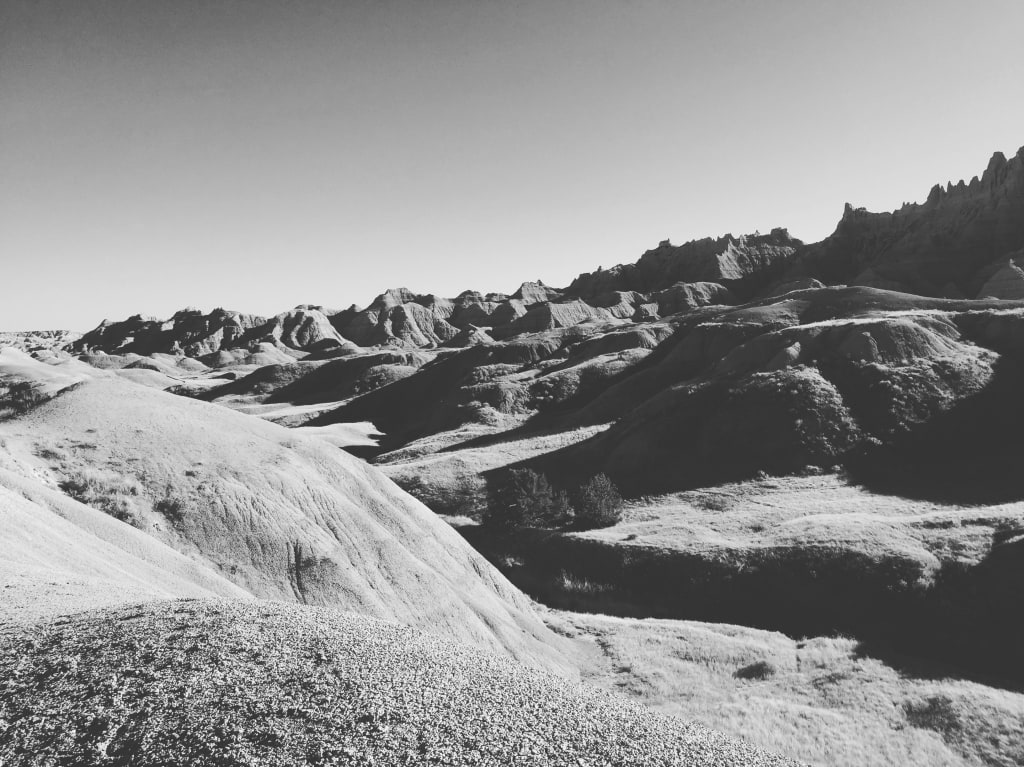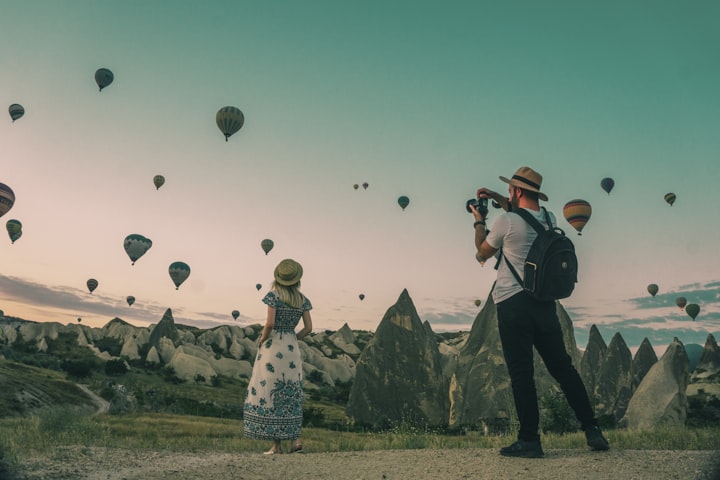What Photography Means to Me
The power of storytelling through photography

I’ve always been a lover of storytelling. In my earlier days this was mostly done through writing fiction and nonfiction and sharing it on blogs and other websites that I found. I long believed that it was some kind of destiny for me to only tell stories through the written word. But during my time in college, I discovered a new way of telling the stories that were important to me: photography.
Storytelling has been a passion of mine, even at times when I didn’t fully realize it. Ever since I was a little kid, different stories constantly ran through my mind throughout the day. I would put some down on paper, while others I let remain exclusively in my head and daydreams. As I got older I started to share some of my different pieces on my blog (thank God for Tumblr), and felt like I was contributing my own little masterpieces to the world of the Internet. But I rarely shared my work with those around me outside of the virtual world. Even though I always told people that I wanted to be a writer, I failed to share most of my work with them. To this day I still don’t quite know where that hesitation came from, but it was there.
Like almost everyone on this planet, photos have been around my whole life, and in some ways have helped tell the story of who I am. There are the obligatory photos of me as a baby and young child, sometimes smiling, other times not. As I got older I disliked getting my picture taken more and more, and now as an adult I would still rather be behind the camera than in front of it. But I always enjoyed looking at and studying photos, trying to find out the stories behind them. I was especially fascinated by the photos of my parents and grandparents when they were young, and tried to figure out what these familiar people were like before I stepped on the scene.
There always seemed to be some kind of camera around the houses where I grew up, though rarely did I use them. My parents would let me borrow one once in awhile, trying to reach me the art of the camera. I didn’t take their lessons very seriously, but I had fun all the same. I liked capturing my view of the world and sharing it with others. It was like I was giving them a perk into my own unique perspective that no one else could show them. Alas, photography did not become a thing of habit until I reached college. That’s when a transformation in my storytelling began.
In the summer of 2015 I bought my first camera with my own money. It was a “fancy” point-and-shoot that I took with me on an annual mission trip. I wanted to tell the story of my trip through a different lens. And photography became that lens.
I didn’t really know what I was doing when I started shooting photos on that trip. I had a good grip on the basics (like pointing and shooting), but struggled when it came to getting the right settings. Low light settings were hell for me, but somehow I made it through with some fairly decent pictures. Every night of that trip I would sit down and go through each photo I had taken. As I looked over each one, I began to realize something: I was telling a story through my photography. My passion for storytelling had gone from just being through writing to now include photography. And I couldn’t wait to share my story with others.
Over the next couple of years my love and skills of photography grew. I was able to save up money and buy my first DSLR and new lenses, taking my photo quality up a notch. I began sharing my photos through Flickr, and studied the work fo my fellow photographers on the site. Angles, color, shutter speeds, aperture—all of it and more seemed to consume my thoughts as photography became a bigger part of my life. The best part was that I began to feel more comfortable sharing my creative works with the people around me. For me, it was easier to share my photography with others than it was sharing my writing. I felt proud of what I had accomplished with my art, and those around me started to take notice and celebrate those accomplishments with me. And then came my big break: people were willing to pay me for my work. And that changed everything.
Growing up and having a passion for creativity, I did not think a lot about getting compensated for my work. All that time I spent writing, I never once thought about how I could make money off of it. All I knew was that I wanted to create, and I wanted to do it well. Even when I was getting ready to go to college and choose a major (creative writing all day), my parents suggested to expand my horizons more and find a study that could lead me to a job that paid well. But I didn’t really care about that. All I wanted to do was follow my dreams and create, no matter how much or how little money I could make off of it. It’s funny how that opinion can change when money is finally on the table.
When people began to offer me money for my photography skills, I was excited. I had been working crappy part-time jobs in college, none of them aligning with my actual passions. No one had ever offered to pay me for my writing, except when I submitted some work to different websites and online platforms (Yahoo! Voices anyone?). Getting paid for my passion was an entirely new phenomena, and I was lost on what to do. Looking back, I definitely undercharged people for the work that I gave them, but I was young and naïve, so I give myself a pass. At the end of the day, all I wanted to do was a great job for my clients and make them happy with the final product of work I produced.
But with this exchanging of money between me and my customers, I began to get an unsettling feeling. Pressure began to weigh down on me like never before, and I began to worry that my skills were not up to par with the best of them. Around that time I also began to expose myself and my work to other photographers in my area, and unfortunately the much loathed art of comparing oneself to others crept into my head. I was constantly looking at what other artists were doing and their accomplishments, and thinking of myself as less than. All of a sudden I felt like I was thrust into a competition that I had never signed up for. It no longer was about the pure art of photography. Instead, it became about making a name for myself.
Doing photography for money began to change the relationship that I had with this way of storytelling. There was a constant pressure to take the best photos and outwork everyone else around me. At this time I was also doing some odd photo jobs to make a little bit of cash after graduating from college, including taking glamour shots of storage units out in rural Ohio (being a young black woman taking photos of white people’s properties is not the best idea). My photography had now become specifically tied into me making some form of income. It took me places that my writing had yet to, and I was sucked into a kind of madness that I couldn’t seem to escape from. While it was nice to make some money and gain recognition, I began to miss out on the thing that drew me to photography in the first place. And then I went on another little trip.
During the fall of 2017, my boyfriend and I went on the adventure of a lifetime: we took off two full weeks, and drove across the country to the west coast. From Central Ohio to the coast of Washington, we embarked on a mission to see parts of the country that we had never laid eyes on. There were mountains that reached to the heavens, and flat plains that seemed to never end. I was one of the few drops of color on the otherwise white canvas of people that we came across, but I didn’t really mind. I just wanted to experience the new chapter of my story. And that story was told through my photographs.
Taking photos was my way of telling a story on that trip. Instead of keeping a journal and writing down everything that we saw and did in a day, I captured moments with my camera. There was no pressure to take the best photos or try to sell them to others. It was just me getting back to what I loved to do, and that was storytelling. Photography felt pure again after that, no longer corrupted by money or other people’s influences. Everything about my photography felt right again. It’s something that I will never forget and will always be thankful for.
Since that life-changing trip, my views on photography have started to swing back to something much healthier than before. Even though I still have opportunities to make money from my photos (and it’s even a part of my office job), I no longer see it as the main goal to strive for. It is now more of an added bonus for something that I love to do. And I no longer feel the added pressure to be in a competition with other photographers. Everyone has their own unique style and perspective, and sharing that with others is one of the greatest gifts that someone can have. Art is art, no matter who makes it.
Photography was something that I never expected to have such an impact on my life. It’s given me opportunities that I once thought were impossible, but have somehow come true. As I continue my journey as a creator and storyteller, I hope that along with my writing, my photography can make a difference in people’s lives. I’m not quite sure what that difference is yet, but I’m willing to keep trying and experimenting until I find it. Photography has given me so much, and I want to give back to others. It’s bigger than just me. Rather, it’s for everyone.





Comments
There are no comments for this story
Be the first to respond and start the conversation.